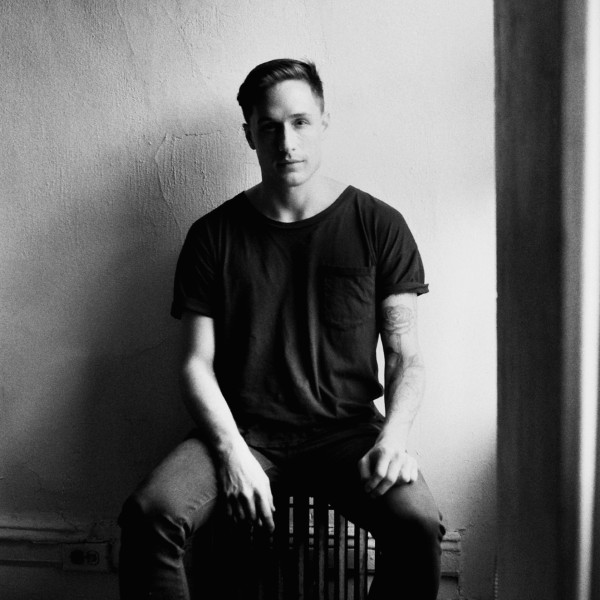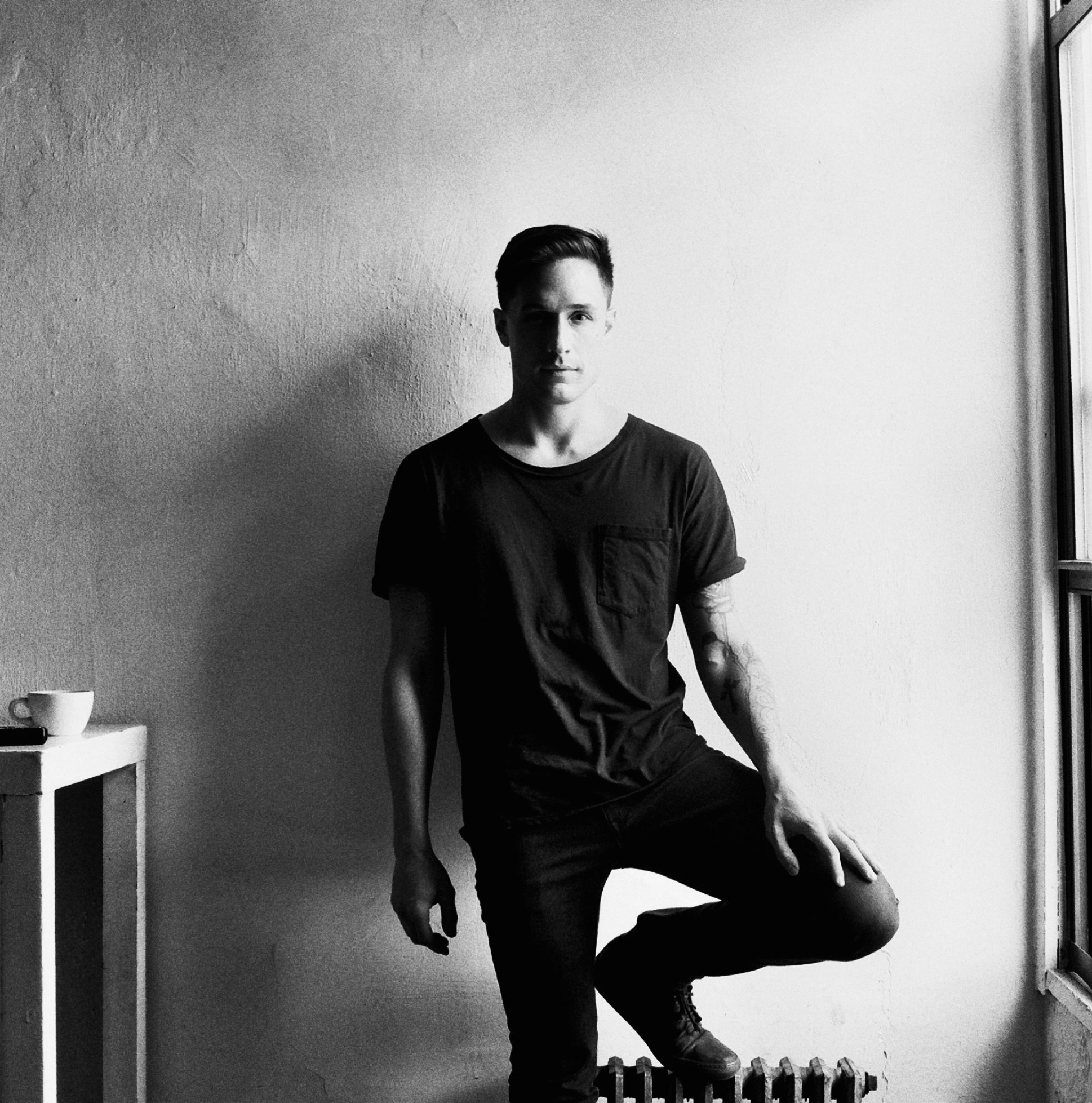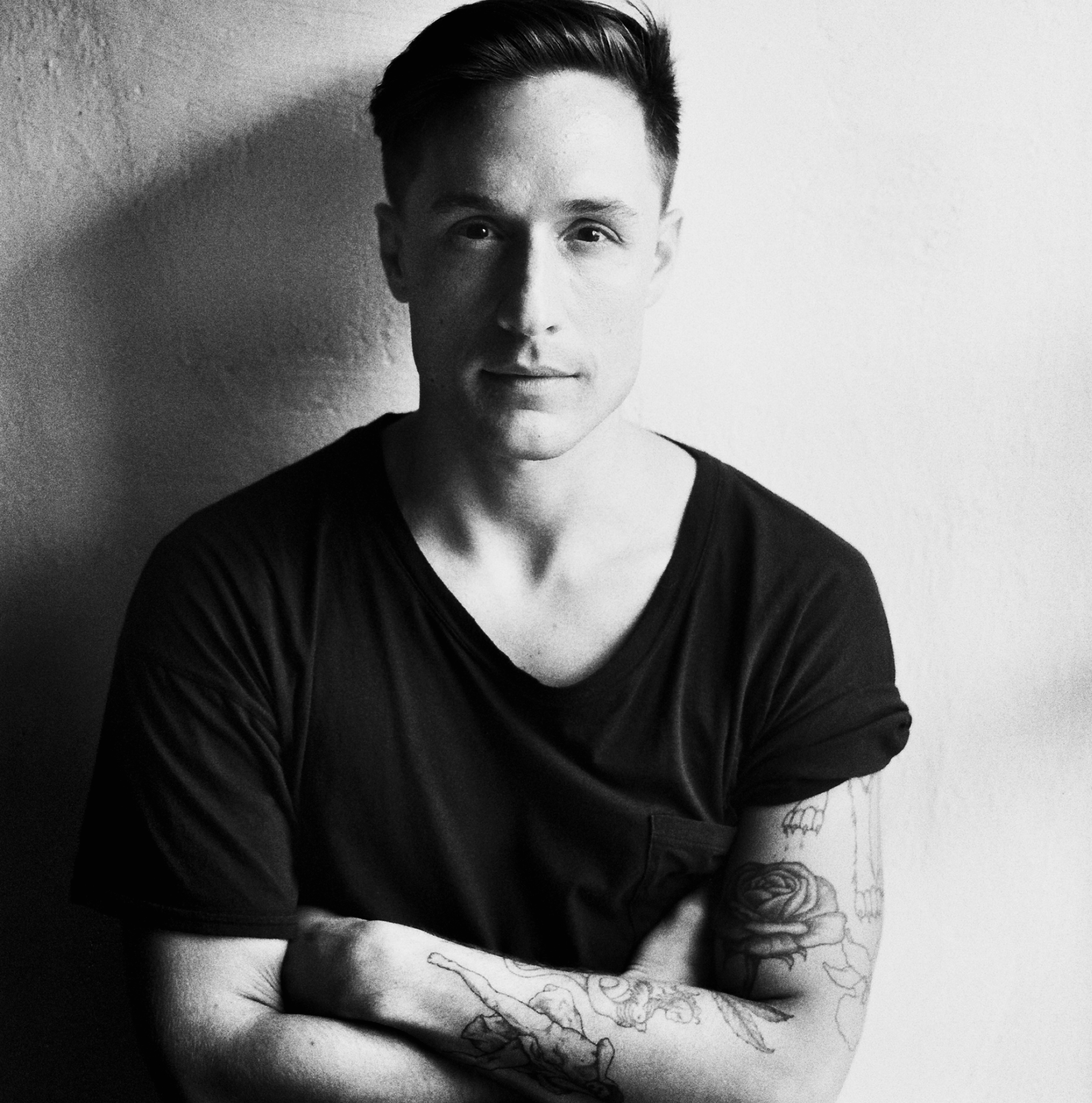
PHOTOGRAPHY BY DANIEL MOSS
It gets better, but not before it gets a lot worse
Chris Stoddard on his new book and the state of alternative queer literature.
In Christopher Stoddard‘s latest book, Limiters, troubled 16-year-old Kyle Mason leaves behind an abusive, chaotic family in search of refuge wherever he can find it, leading from the rave culture of suburban Connecticut to the harsh gleam of New York City. It’s a tale of exodus that should be familiar to readers of Stoddard’s work, whose debut novel, White, Christian, told the story of a similarly drug and sex-addled protagonist looking for a fresh start. Instead, like Kyle and so many other LGBTQI youth, he came face to face with the inescapable cruelty and duplicity of the human experience, recounted with as much heartbreaking candor as Limiters‘ often tragic subjects. Stoddard, whose prose is sharp and sometimes unforgiving in its realism, is unafraid to lend us an honest look into the lives of those who don’t end up with the longed for, “It Gets Better” version the LGBTQI story, those who are instead scattered into the fringes of American culture with little to no hope of a happily ever after.
Stoddard, who draws from personal experience for many of the misadventures his characters endure, published Limiters on ITNA Press, his own emerging Brooklyn-based press. Since August of last year, Stoddard has published two books aside from his own that focus on provocative subject matter: the surreal, “future-queer” world of La JohnJoseph‘s Everything Must Go, and incendiary artist Slava Mogutin‘s collection of poetry, essays, and collaborations, Food Chain. ITNA is already proving to be a welcome force in the publishing world for queer writers, giving further testament to Stoddard’s indomitable work ethic and perseverance to get atypical fiction published in a culture that doesn’t often give such work the platform it deserves.
We got in touch with Chris to ask him a few questions about future plans for ITNA Press, his own writing process, and why telling the darker side of LGBTQI experiences is equally as important as telling the light.
How did ITNA Press start? ITNA Press started with Satanica — a one-issue magazine that artist Gio Black Peter and I released in December 2012. We wanted to showcase our kind of artists and writers: a supremely talented group whose work is often considered overly transgressive for mainstream audiences. After that, I finished writing my second novel Limiters, and rather than going through the publisher of my first novel White, Christian, or submitting the manuscript elsewhere, I decided to release the book under my own imprint, alongside other authors whose work I admire.
ITNA publishes work that’s deemed “too provocative for the mainstream.” How do you define provocative works in the context of ITNA’s vision and what about that work appeals to you? Why do you feel works that push boundaries — sexual or otherwise — are important? Well, I wouldn’t immediately equate the word provocative with sex. There are a wide variety of provocative subjects in literature that appeal to me. My tastes range anywhere from a novel about drug addiction and inner city poverty to a book about the eccentric, incestuous rich. The first three titles out by ITNA all have alternative gay similarities. However, the next ITNA books may highlight other underrepresented groups.
Were there any books you read in the past that inspired ITNA’s vision for uncompromising literature? Or was the lack of more controversial works what inspired you more? It was the latter — seems the gay presses are suddenly only interested in publishing books about assimilation and those that promote heteronormative values. I wanted to share stories about other aspects of gay life, as difficult as they are to digest.
Considering the numerous pitfalls the publishing industry has faced over the last decade or so, what has been the most difficult aspect of starting up ITNA Press so far? I’d say working on the business side overall has been difficult for me. With the exception of one very part-time assistant and a few freelance editors, I’ve done everything myself. For the industry as a whole, I think the larger publishing houses’ difficulties stem from profit loss, but I didn’t start ITNA Press to make money.
Are you considering electronic publishing for ITNA Press? Why or why not? Yes, we are already doing this. Two of our three titles are available on Nook, Kindle and iBook, but I’ll never just publish in that format. Readers will always want to hold a book in their hands, myself included.
Kyle’s journey in Limiters is realistic in that many LGBTQI teens who run away from unsafe homes look for a new family wherever they can find it, often winding up in dangerous situations as a result. Why do you think telling Kyle’s story is important for queer readers in 2014? On Facebook I often find viral videos and articles about parents and teammates who are understanding when a teen comes out, which are great and inspiring, but not the whole story. Even if a kid is accepted when he comes out, there is still a long journey that happens beforehand. I wanted to show a boy’s maturation into adulthood in the direst of circumstances — dark childhood experiences that inhibit many of us from having healthy relationships or coming to terms with our sexuality. This is especially relevant today for teens in Russia and states in the US that have passed anti-gay laws.
You’ve mentioned that nihilism plays a big part in the content of your novels, and Limiters reflects that with unflinching, often brutal honesty. Did you ever find it difficult writing some of the darker moments in the novel? Some of it was certainly difficult to write. I connect quite strongly with the protagonist because his story triggers memories of my own adolescence, and while I believe in the sensibility of the book and the messaging behind it, it can be hard to swallow.
Do you write with an audience in mind? Is there someone you hope to reach with a novel like Limiters? I don’t have an audience in mind when I write. I do it more for myself and what I need to get out of my head at the time. But sometimes I get letters from readers who’ve connected with my work, and it gives me a sense of satisfaction knowing others can relate to it — even if it’s just one person.
What’s your favorite gay novel or author? What are you reading now? I’m just finishing up Against Marriage by the underground literary great Bruce Benderson. And my favorite gay novel is Giovanni’s Room by James Baldwin. It’s one of the most honest depictions of our bouts with love and experience, so often overlooked because of our sudden need to adapt to the fantasy of heteronormativity. But stories like these need to be told and acknowledged, too.
Are there any upcoming books or projects ITNA will be publishing that we should be on the lookout for? Yes! TBA mid-summer!
To order books from ITNA Press or submit your own manuscript, visit their website here.

